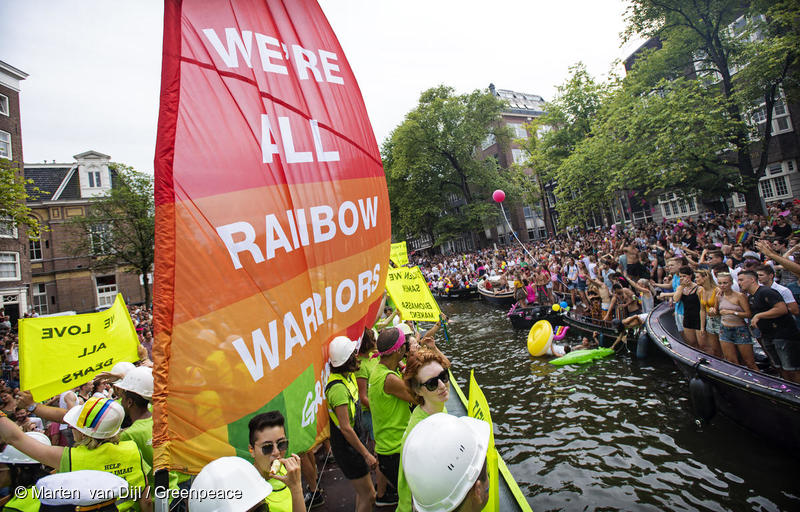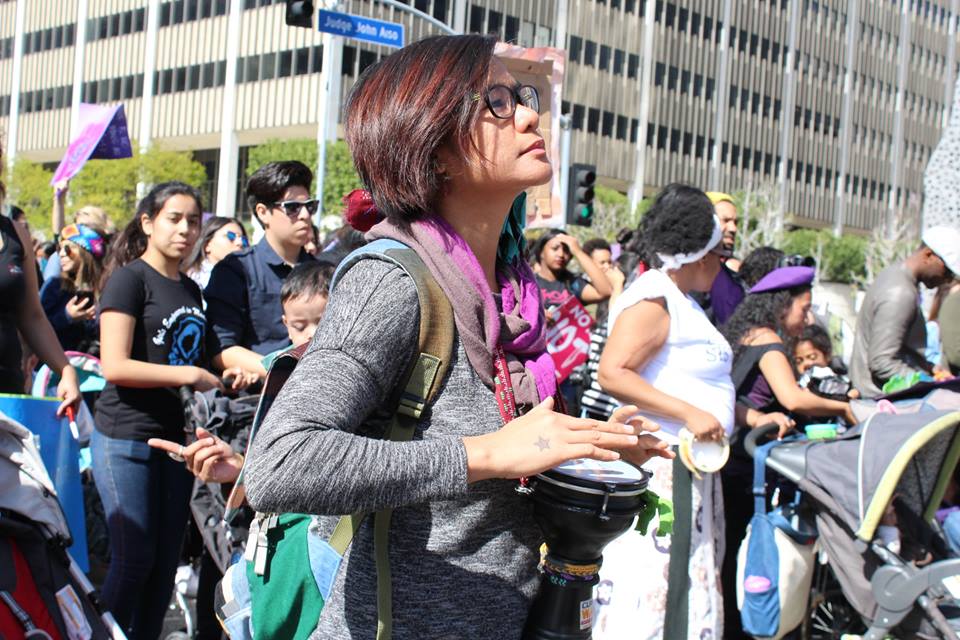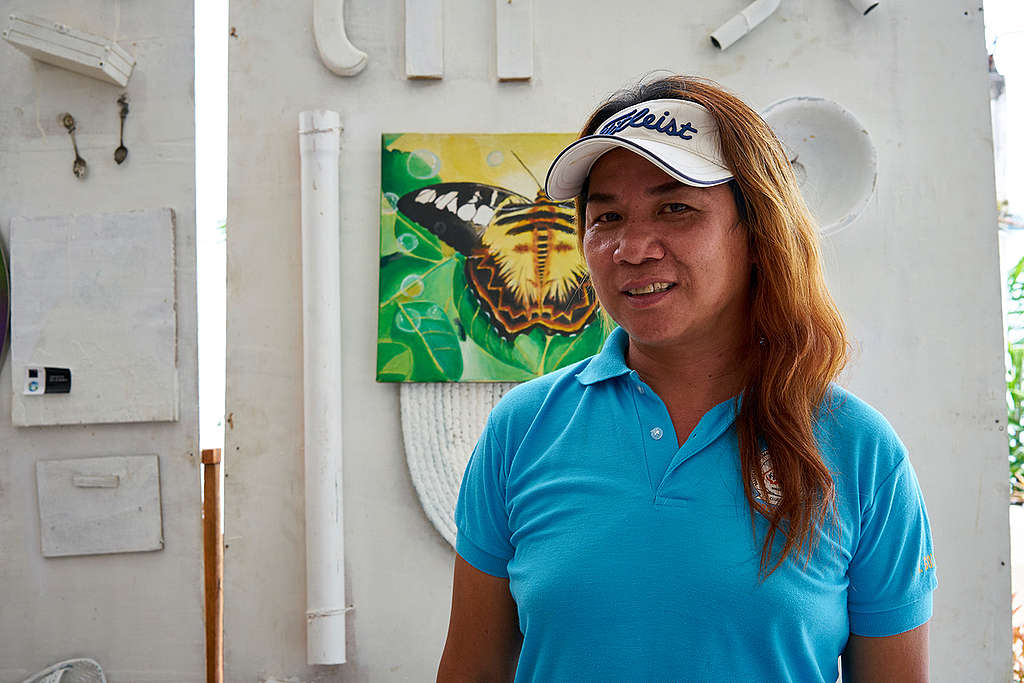When the first shot glass was thrown, nobody involved had any idea they were going to alter the course of history. No one knew that the one act they took to stand up to discrimination had the power to change peoples’ lives.
This was 50 years ago, when the Stonewall riots–a series of demonstrations by members of the gay community at the Stonewall Inn in New York City–put gay rights on the map.
Since then, the story of the LGBTQI+ has certainly evolved. I live as an openly gay man, a father and a husband, and work in a safe and protected workplace. I’m lucky and I’m privileged. Yes, I’m a middle-aged white man and it’s okay to remind me of that when I forget, because the life that I lead today is due to years of activism of individuals before me.

But the fight for equality is not over, and as a gay activist for so long I recognize that what I experience in my daily life is drastically different from individuals across the globe who suffer discrimination, or the affects of climate change, on a daily basis.
Below you’ll read the stories of Pierce, Nityalila, and Arthur – LGBT activists whose lives were changed by 2013’s super-typhoon Haiyan, one of the strongest storms to ever hit the Philippines. In the aftermath, not only had their lives been forever changed with the shock of a super storm that tore apart their household, belongings, and people they knew and loved; but they also faced discrimination and challenges like no other, as people who were just trying to survive and get access to the same basic human rights as anyone else.
Their experiences show that in this current climate crisis, we need allies and partners working in true partnership. We need to shift the power from those few individuals, to the people most affected by climate change because we cannot have a clean and green, rainbow and loving planet without human rights and justice for all. The people at Stonewall used strength, resilience, and the beauty of community because they knew they were not alone. One small act can change the world – never underestimate your own power.
Pierce Docena, Professor based in Tacloban, the city that was most impacted by typhoon Haiyan

They say the political is personal. In my case, nothing can be more personal than surviving super typhoon Haiyan as a gay man in 2013. This is not to say that I had the worst experience among all LGBT survivors of Haiyan, only that it opened my eyes to the realities confronted by various LGBT people as they worked to rebuild after such unthinkable loss and devastation.
At first I thought my situation was so difficult, but meeting other LGBT people and hearing their stories taught me valuable lessons about intersectionality and how privilege works especially in times of disaster.
To be honest, I never experienced being relocated or queuing for relief items. I largely attribute this to my status as an upper middle class educated gay man who teaches at the country’s national university, aspects of my identity that buffered me from the impact of Haiyan. But several LGBT survivors I was able to talk to shared stories that I can only describe as horrific and inhumane. Many of them had low education and belong to low-income families, which compounded the discrimination they already faced as members of a sexual/gender minority group.
For those advocating for LGBT rights and well-being, we need to realize that we are so much more than just our SOGIE (sexual orientation, gender identity, and gender expression) – that is, there are multiple and intersecting aspects of our identities that affect our current situation. For those advocating for the environment, we need to understand that climate justice is not separate from social justice. Everything is connected and all forms of oppression are systemic and linked. To ignore other aspects is to fail in our cause. At the end of the day, we are actually advocating for a just society where everyone, regardless of sex, race, color, SOGIE, religion, age, status, etc., deserves the chance to flourish as human beings.
Nityalila, a Filipino singer-songwriter, environmentalist, climate artist advocate, and a founding council member of Dakila, a non-profit organization that campaigns on different human rights issues through the arts.

Growing up in the Philippines, we are familiar with experiencing storms. In 2002, my family’s business suffered greatly due to typhoon Milenyo. The hard work that my parents built for 35 years was severely crippled in a couple of hours, and in a family with 10 siblings, that business was crucial in supporting all of us. Since then, climate change has become very personal. In 2009 during typhoon Ondoy, my father, two siblings and I stayed on our roof under the pouring rain, fighting for our lives for almost 24 hours.
As a musician, I use my voice as a tool to raise awareness on the lives at stake due to the climate crisis. But when I personally witnessed the impacts of Haiyan, I realised that raising awareness was not enough. It was time to take collective action.
In 2016, I moved to the US to explore opportunities as a musician and an artist. There, I felt the acceptance of the LGBTQIA community. Armed with my newfound authenticity, I wanted to share my story. A year later, I decided to end a long-term heterosexual relationship and come out to my family and friends. I struggled with the fear of being discriminated and not being accepted by my loved ones. There were those who refused to accept, refused to listen to my truth, and I lost some friends in the process. But then there were many who expressed support and embraced my authenticity.
That’s when I realized that our voices become more powerful when we have a strong community supporting us. This was evident in the Stonewall riots, and now the surge of climate strikes all over the world show the growing communities that are reclaiming their rights. Although there is still so much hate, bullying, and discrimation around us, we have also come so far. These global acts of solidarity show that we are not alone, whether you are gay or you’re facing climate impacts.
I believe that both the LBGTQIA and climate movement are about fighting for our lives. The LGBTQIA movement struggles with its own impacts such as discrimination, mental health issues and suicide. Aside from extreme weather events, the climate movement struggles with unnatural disasters fueled by denialism, inaction, and greed, and apathy. Both face enormous challenges, but there is hope when people on the frontlines act together.
Hope is where the heart is. And if we can all put our hearts into ending oppression, there is hope for a better world.
Arthur Golong, Community Leader based in Tacloban City

Arthur never considered herself a leader. But when typhoon Haiyan happened, she had to become one.
Arthur was the only gay person from the village she grew up in, and in her pre-Haiyan life, she really did not like talking to people. In fact she would avoid them. But after surviving Haiyan, Arthur was the only one in her family who could go outdoors everyday and search for food and water.
Even in the face of disaster, Arthur had to find a way to rise up and survive. Harassment and sexual assault are all too prevalent, particularly for trans women, openly gay effeminate men, and non-gender conforming people. They are often not allowed or not welcome to line up for food, water, or supplies (“You don’t belong in this line!”), or are last in line, so they end up receiving nothing. Men do not want them using the men’s washroom, and women do not want them using the women’s facilities.
Arthur helped with relief distribution in the days after the typhoon, and quickly turned her fear of talking to people into a voice that advocates for the needs of those who were displaced by the typhoon. Now she has talked to Congress, government officials, media, and her daily work is talking to the hundreds of residents from the 38 different towns who were relocated to the resettlement site. Arthur says that even though she is gay, they trust her, although she still faces discrimination.
“No one will make me change who I am,” she says. “They should judge me for how I can lead and my ability. It’s not my clothes that work, it’s me. I don’t need to wear a collared shirt to talk to you.”
About the Author
Edwin Nichols is an Executive Officer at Greenpeace International, The Netherlands
